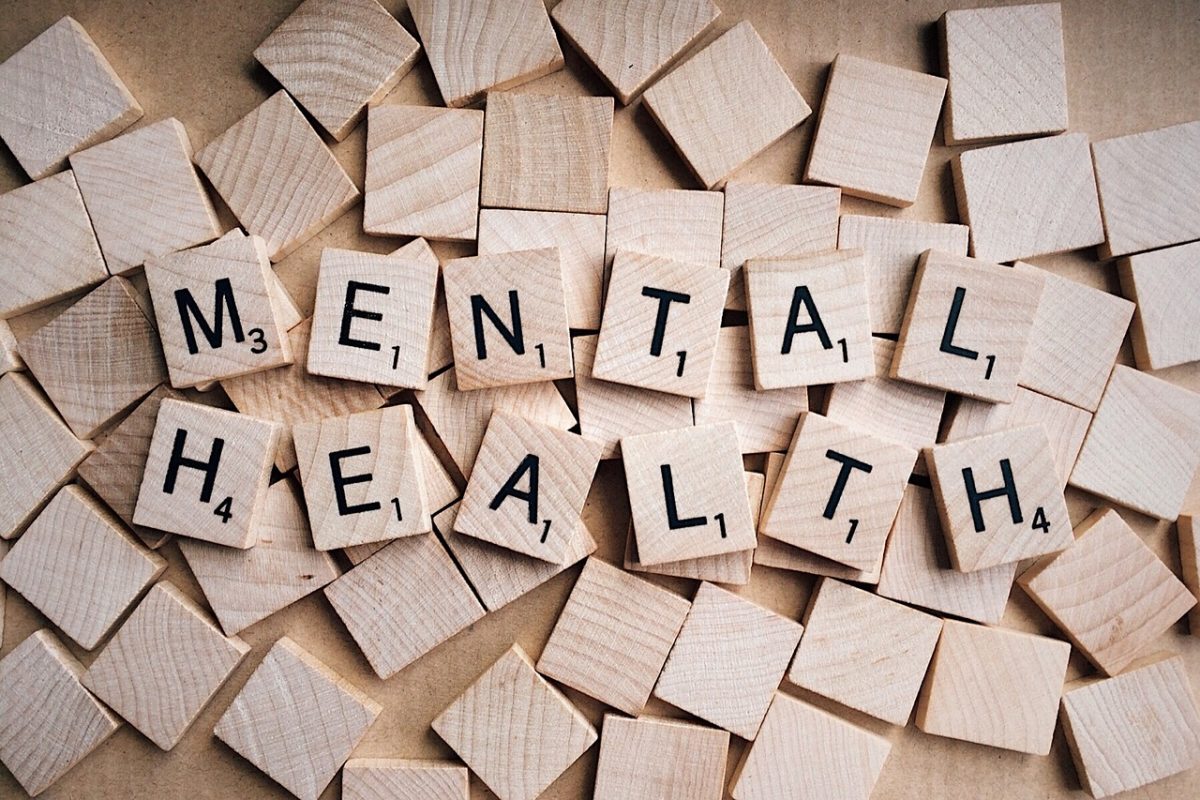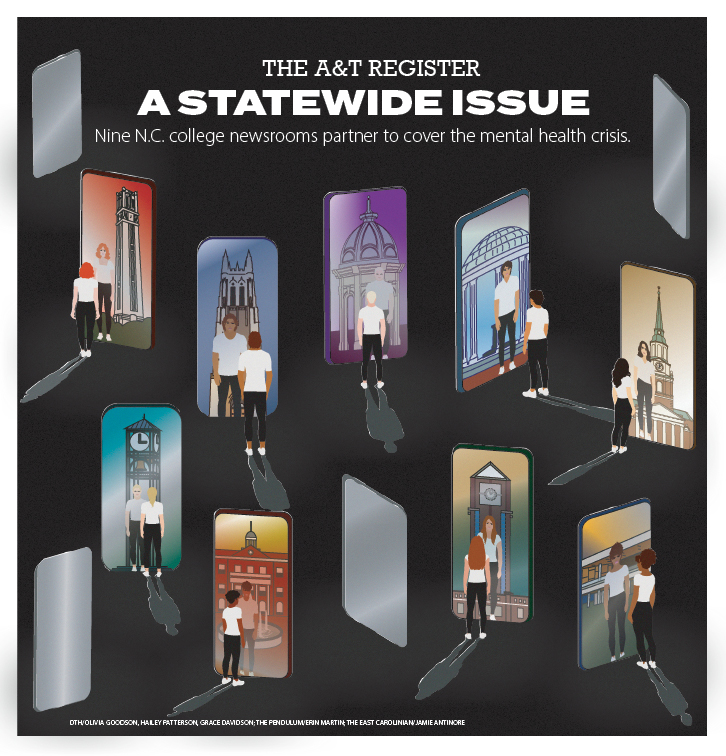Sophomore N.C. A&T psychology student Mulekesa Dorckasa grew up in a household where mental health was not talked about much — she credited it to being Congolese and growing up in a community that didn’t necessarily highlight the impact of mental health.
“As I got older, I started to see the importance of my mental health,” Dorckasa said. “I do a lot of self-care, and I do video diaries which are pretty much like a journal, I’m just recording it. I go to therapy as well, and that has been something that has improved my mental health in a big way.”
Mental health awareness has come to the forefront of many discussions nationwide. At N.C. A&T, many students are actively looking to improve their mental health and implement various activities that help them maintain a well-balanced lifestyle.
Campus-wide wellness days are a way of implementing measures to push students to take a break from their studies and other commitments.
Asha Taitt, a senior multimedia journalism student at N.C. A&T, said she sees wellness days as a time for students to realize that it is okay to stop working and take a break.
“What I think people realize is, there’s a lot of conversations about mental health and mental wellness that have always occurred on this campus — before us even being here,” she said. “But it wasn’t until recently that they realized, ‘Hey, maybe we can take some of the load off people by actually giving them a break.’”
Cameron Williams, a junior supply chain management student at N.C. A&T, actively chooses to take breaks, recognizing the importance of giving himself time to take a breath in the constant environment of hustle and grind.
“I’m all for pushing myself to be better, but there always comes a time when you slow yourself down by trying to do too much,” he explained. “I plan my rest days and leisure activities whether it’s golf, watching a basketball game, writing, painting or just taking a rest.”
MENtality: A conversation about men’s mental health with Sterling K. Brown
At N.C. A&T, counseling services are available for students through the university.
Assistant Director of Counseling Services Victoria Dalton described it as a place that provides individual and group counseling.
Mixed reviews have plagued N.C. A&T’s counseling service over the years.
A junior journalism student, Mattie Moore, tried N.C. A&T’s counseling services but her experience fell flat.
“After realizing the therapist I was paired with wasn’t a good fit, I decided not to return,” she shared.
However, Dorckasa had a great experience, saying it allowed her to improve.
“I can honestly say that I am so happy that I started counseling services because I found the perfect fit when it comes to a therapist or counselor.”
Counseling services may not be the solution for everyone. When looking for other ways to prioritize mental health, there are also students on campus who are advocates and actively have events focused on the importance of self-care.
Taitt serves as the vice president of N.C. A&T’s Student University Activities Board, an organization dedicated to enhancing student life through diverse programs.
As vice president, Taitt has overseen various mental health-focused events and has pushed for more advocacy on the topic.
“I’ve been mental health trained for about like two years now. I’ve even pushed for the executive student leaders on campus to be mental health trained. So we all got that done, this past August so that people feel as though we are somebody they can confide in. Because at the end of the day, we’re students too.”
Dalton says that there has been a change in the way mental health is dealt with now versus then.
“Less stigma is attached to asking for help now,” Dalton shared. “Society appears to be more receptive to reporting mental health concerns as evidenced by seeing increased advertisements to seek help.”
Although there are resources available for students throughout the University, things can always improve.
Moore suggests more transparency with counselors and the areas they specialize in to give students more information on who may be the best match for them.
Taitt sees a solution in advocating for mental health training for leadership and students across the board. She also mentions how counseling services could work better for students.
“I also think that we just have to push for more counselors in counseling services; a lot of people are frustrated because they feel like their presence isn’t known,” she said. “Or that they don’t get to consistently meet with the person they signed up to meet with. That’s mainly because they’re understaffed.”
A measure that has worked well for the students at A&T is the various events that SUAB puts on, focused on mental health.
These events are some of the most popular with a high turnout and consistent requests from students asking for more things like R&B yoga and sound bath events.
“I think that the mental health events are the most personable for people and so we tend to get a higher attendance for those events,” Taitt said. “Just because it is about the students.”



